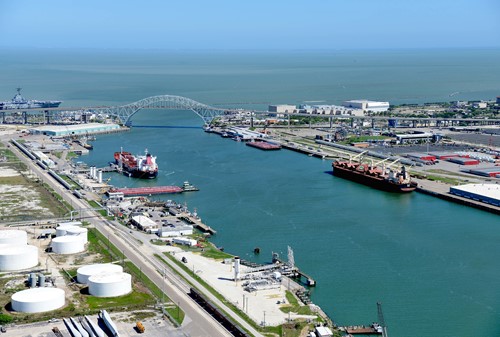News
Port of Corpus Christi inks MOU for green H2 production

The Port of Corpus Christi Authority has entered into an MOU with funds managed by Ares Management with the intention of developing renewable energy infrastructure on Port-owned property to support the production of green hydrogen and optionality to provide renewable power directly to the port and its customers.
Where hydrogen is typically produced by breaking the bond between hydrogen and carbon atoms in natural gas, with CO2 emissions, if not captured, green hydrogen is produced by passing an electric current — generated from a renewable energy source — through water (a process known as electrolysis) without any emissions. Electrolysis is gaining traction as part of the energy transition, as the hydrogen produced is a clean fuel that can be used in existing high carbon intensity industries and processes, such as refining, ammonia and fertilizer productions and thermal power generation. It also has the potential to be instrumental in difficult to decarbonize industries such as steel and cement production.
The MOU outlines preliminary provisions for a renewable energy and clean fuel hub that will be comprised of solar facilities, battery storage facilities and electrolyzer facilities to be located on Port-owned property. The first set of facilities will be made up of an up to ~210MW solar project and an up to 840MWh battery storage facility, which will be capable of powering an electrolyzer facility to produce ~9,000 MT of green hydrogen per year, with the possibility of expanding the facilities over time, including for the optionality of providing renewable power directly to the port’s operations.
“As the Energy Port of the Americas, we are working to find new ways to operationalize our commitment to decarbonization. This project not only brings a new type of economic activity to our gateway, but it will directly meet the needs of our current customers, many of whom use hydrogen in their production processes,” said Sean Strawbridge, Chief Executive Officer of the Port of Corpus Christi. “Partnering with a company like Ares, which has made a demonstrable capital commitment to renewable energy initiatives, is a fantastic opportunity for the Port.”
The nonbinding MOU defines a range of possibilities for the ownership and operation of the infrastructure assets. Development activities will commence immediately, with construction and operations of the different facilities expected over the next several years.

